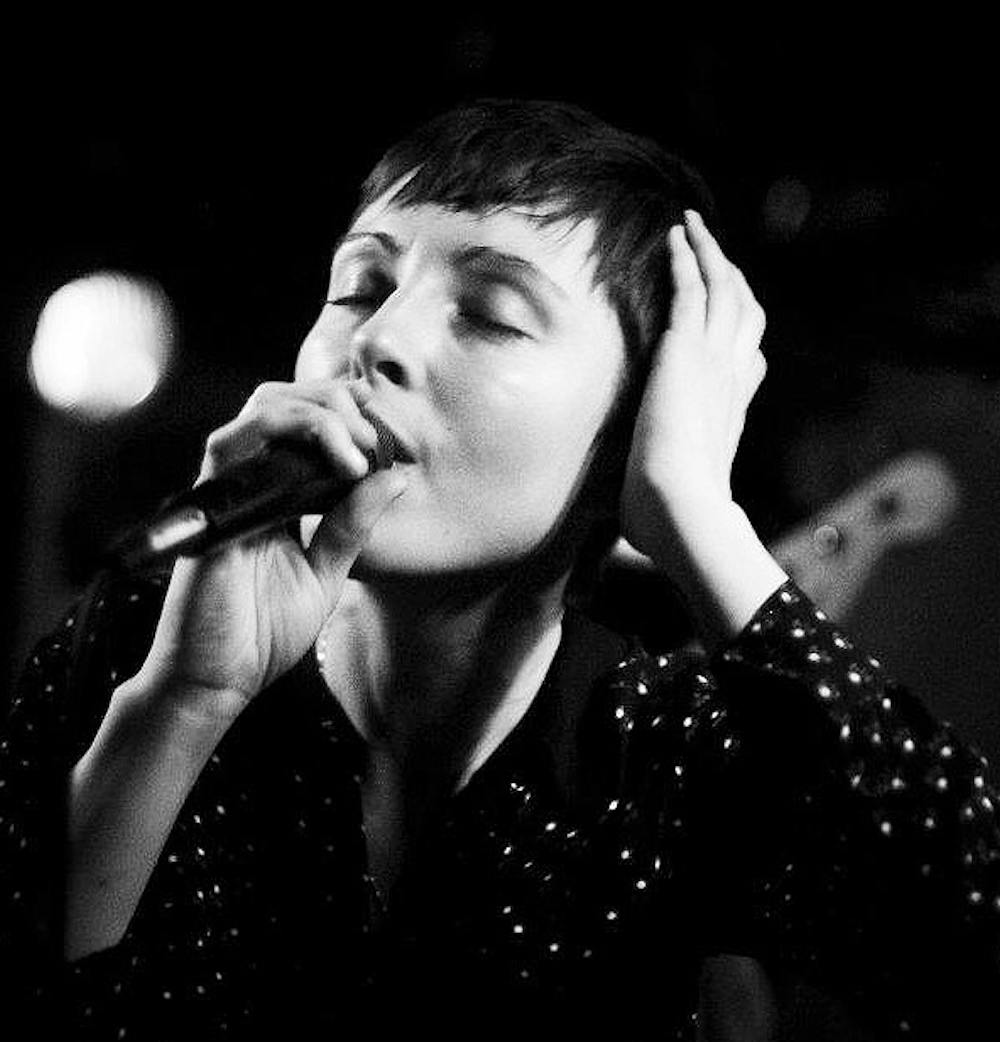Minneapolis-based outfit Poliça blends R&B’s lovesick melodies with the instrumentation and ethos of a rock band. They’re stopping by the Triangle on Thursday for a show at Local 506 with Baobab opening.
Staff Writer Austin Cooper recently talked with vocalist Channy Leanagh about her diverse influences, noisy drummers and auto-tuned vocals.
Diversions: Can you talk a bit about your influences? What artists have been instrumental in defining your sound?
Channy Leanagh: I don’t really know what my influences are. You know? I listened to a lot of music growing up, and I still listen to a wide variety of music. I guess I’ve said that I’m heavily influenced by R&B, but I was also in a folk band for about five or six years so I know a lot of, like, Carter Family songs too. It’s hard — I don’t really know myself that well.
I grew up listening to Sam Cooke — I guess my answer is that my musical influence is my dad. He played me music as a kid and I listened to whatever he wanted, whatever he listened to.
Dive: And what do you find yourself listening to this year?
CL: I’m really excited about what James Blake is doing, what the possibilities are with The Weeknd, with Frank Ocean. I listen to a lot of that kind of stuff—hip-hop and R&B.
But I’ve also been trying to listen to more, like, Led Zeppelin lately. I don’t know anything about them.
Dive: Why two drummers? What’s the impact of that arrangement on the group’s dynamic?
CL: It’s really something you have to see live. It adds a different kind of dynamic.
We’ve got a drummer who’s coming from more of a hip-hop background and then the other drummer plays in a lot of punk and rock bands.
You put those drummers together and you get an aesthetic and a dynamic that are really helpful in the songs that we’re writing and performing.
It’s definitely louder than one drum kit, but it can definitely end up having more space — more subtlety — than you’d think. I guess it’s really something that you have to see.
Dive: How does Poliça’s use of vocal processing affect the way you sing?
CL: I guess I’d start by saying that I don’t think I’ve ever sung harder or worked harder on stage before this band. I’m definitely singing pretty hard.
I’m using my voice more than maybe I did in other bands because you have to sing in a different way when you’re processing it as opposed to just singing into a microphone.
In particular, it sort of reminds me of my voice on drugs. If you ask someone why they use drugs — its not like its necessary, it just makes you feel good, or it’s a different experience, or it takes you to a different place.
That’s what I feel like with this vocal processing. I’m able to get in a mood that I feel matches the beats, and it’s also just very interesting as a singer.
Dive: Your music seems to bridge the categorical gap between rock and electronica — was this a conscious decision?
CL: Not really, I feel like the genre of this music is sort of the producer’s, Ryan Olson’s.
I’ve tried to describe this band in lots of different ways but it’s the sound of this person who’s composing music. And the melodies and the things that I’m singing, I guess I’m making them, but none of us have ever spoken about what genre we’re trying to make, if we’re trying to reinvent a genre, if we’re trying to be more R&B.
Dive: Do you think that Poliça is “headphone music” or is it something that is best experienced live?
CL: The live show is a much different experience than the record because all of us in the band are kind of making it come alive. I guess I would probably consider myself more of an entertainer live.
It’s an experience — not that it’s a rave party at all — but we do normally put on a pretty good show, so I think it lends itself well to a venue. I’m dancing, I’m having a good time, so I think I can speak for it as being good club music, good bar music. More stereo.
To get the day's news and headlines in your inbox each morning, sign up for our email newsletters.





